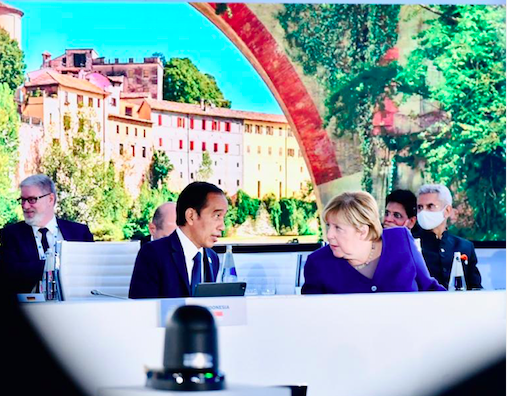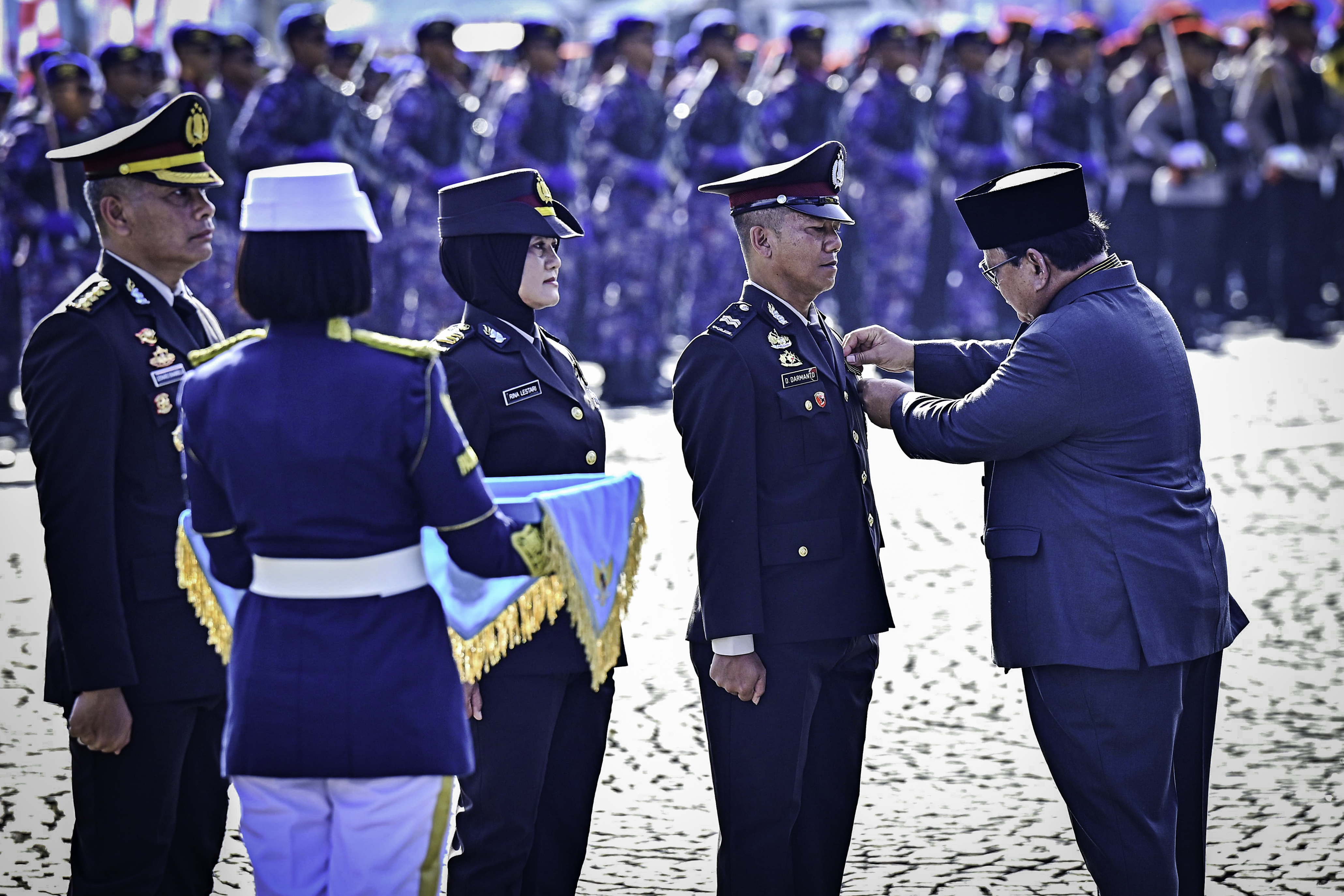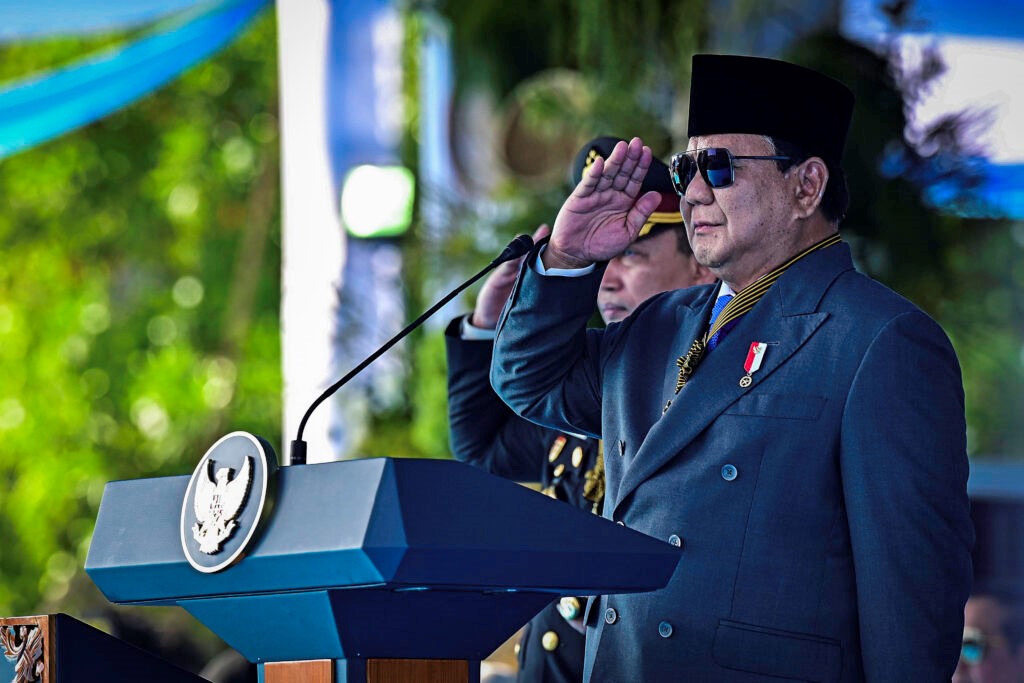President Jokowi Calls on G20 Leaders to Create Resilient Global Supply Chain Ecosystem

President Jokowi engages in a conversation with German Chancellor Angela Merkel on the sidelines of the G20 Summit in Rome, Italy, Sunday (31/10). (Photo by: BPMI of Presidential Secretariat/Laily Rachev)
Disruption in global supply chain can hinder the realization of a strong and inclusive recovery and become a new economic challenge that triggers price increases and scarcity of goods, hampers productivity, and affects people’s well-being, according to President Joko “Jokowi” Widodo.
“The impacts of disruption are more pronounced in developing countries. During the pandemic, we see limited access of those countries to vaccines, medical devices, and medicines. It is our task to make a resilient, diversified, and sustainable global supply chain ecosystem. Not only in economic dimension but also in development,” President Jokowi said at the Global Supply Chain Summit, which was held on the sidelines of G20 Summit, in La Nuvola, Italy, Sunday (31/10).
In this regard, President Jokowi underlined several important things. There are two things that must be ensured for the short term, he added.
First, the reactivation of global connectivity, including the mobility of business players and labor groups.
“We need to ensure universal recognition and acceptance of vaccines according to the WHO standards, while facilitating the restoration of non-discriminatory international travel,” the President said.
Second, continually increase the capacity and opportunities of the private sector in accessing global supply chains. Related to this matter, Indonesia has made regulatory reforms and improved the business climate through Job Creation Law.
“We also continue to encourage and accelerate digital transformation and automation in order to improve supply chain traceability and expand access for business players in the supply chain, including micro, small, and medium-sized enterprises (MSMEs),” he said.
For the long term, President Jokowi highlighted the need for collaboration between countries for three other things.
First, strengthening of logistics infrastructure. All countries need to support investment and technology cooperation to strengthen the capacity and distribution of logistics infrastructure, especially for developing countries.
“Through a partnership between the private sector and the Government, Indonesia is building and improving 30 ports across the country,” he said.
Second, diversification of sources of supply. The President is convinced that investment and industrial cooperation between countries as well as strengthened mutually beneficial trade flows are the keys.
Third, the biggest risk in the long term is trade protectionism which has the potential to harm global supply chains.
“We must cooperate in a spirit of mutual support instead of limiting each other, encourage constructive and non-discriminatory policies in accordance with international law principles, and respect the national context and sovereign rights of each country,” the President remarked. (BPMI of Presidential Secretariat/UN) (RIF/MUR)








